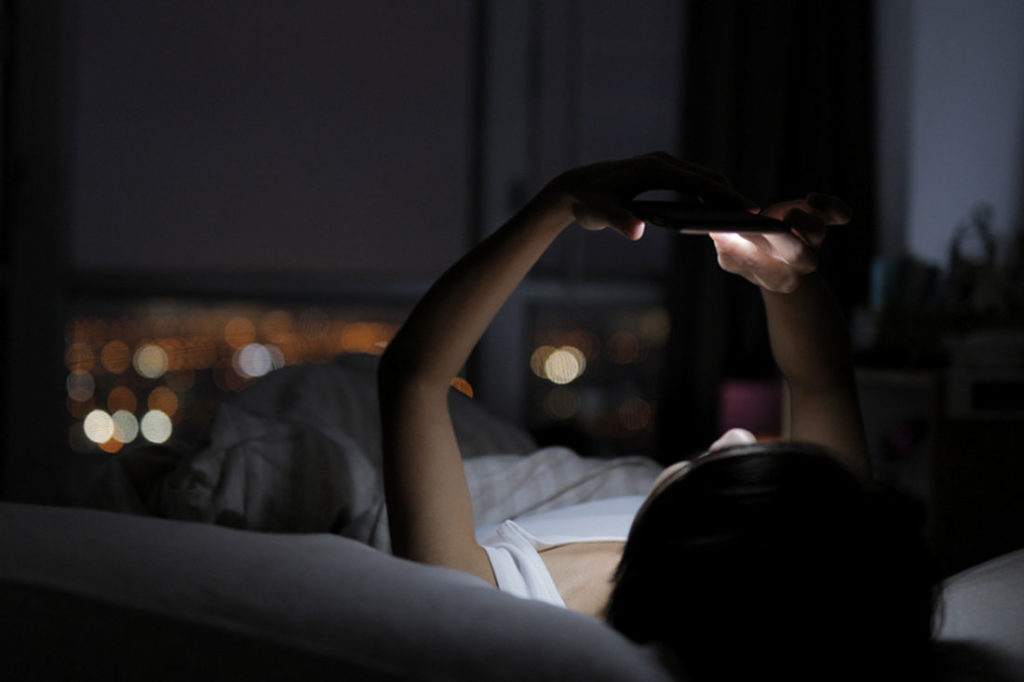I descended into the subway toward the metallic tube that would rush me across the city in the dark underground. A man was having a phone call, lingering halfway down the stairs, not yet ready to cut the umbilical cord with the unseen radio tower that connected him to the Matrix.
This would be no problem except that dozens of rushed commuters were piling up behind him like water in a kinked hose.
A minute later on the platform, the subway doors opened and another unconscious automaton, without raising an eyebrow, shifted his heaving bulk juuuust inside the train doors, deeply engrossed in an epic battle of man versus candy.
His glacial pace nearly caused a mother and child behind him to get caught in the ruthless jaws of the closing doors.
“Hey man,” I said. “Your Candy Crush session is going to get us all killed.”
He roused his glazed eyes to meet my face, looking confused, before returning to the cold glow of his colorful puzzles without saying a word.
If this is not an addiction, I’m not sure what is.
“But, Mike, you’re starting to sound like a cranky old man…”
Yes, and I’ll make a passing reference to the virtues of cellphones, but I’m not done scaring you yet. You see, I too, have a problem: I can’t remember the last time I went #2 without my cell phone.
Welcome to “Group”
“Hi, my name is Mike, and I have an addiction.”
“Hiii, Miiike,” 2 billion voices ring out.
Welcome to cellphone-aholics not-so-anonymous, population: just about all of us.
Permit me to lay a few truth bombs on you:
- The average person checks her phone 110 times a day.
- Three quarters of people check their phone first thing when they wake up.
- 61 percent sleep with their phone turned on, by their bed.
- 1 in 3 smartphone users wake in the night to check their phones (it’s 50 percent for people 18-24).
I’m not suggesting that cellphones are all bad; I carry mine daily. I am arguing that there’s a vast gulf between two modes of using them: with mindfulness, or unconsciously.
Related: What I Learned About Relationships From 30 Days Without Texting
Like any tool, a smartphone can be used for good or, uh… not good. New research on cellphone use scares me:
- Half of 11 recent studies have linked social networking to depression.
- Using your phone before bed means you’ll fall asleep slower and sleep worse.
- Relying on your phone to relieve anxiety may stunt development of more effective skills to cope with that negative feeling.
- People who are constantly connected feel more anxiety, which can lead to other mental health issues.
Warning Signs
Smartphones do improve lives: Mine makes up for my horrible sense of direction, and organizes my schedule. It lets me carry the gift of music everywhere, and capture memories with pictures and videos. I can run my business from my phone, and know the answer to virtually every question I can think of.
I like to believe that I’m using my cellphone instead of it using me, but I’m not perfect.
So how do you know if you have a problem? Here are some signs:
1. You check your phone in the middle of the night.
If you’re expecting a call from your pregnant wife, then by all means, cuddle your device. But if you wake up at 3:41 to check if your latest post has new likes, you may have a problem.
2. You text-walk.
Walking is a rather important human ability, one that requires most of our attention. You put yourself in danger when you text and walk (we’ve all seen the videos), and become an obstacle to people who are trying to get around you. Text-walking can’t be done well. Stop it.
3. Your phone is your constant bathroom companion.
Never mind the hygiene issues, this is just weird. I kinda see the efficiency argument, but if this becomes a habit, then at least be aware of it and don’t admit it in a SUCCESS article.
4. You get anxious when you forget your phone.
Humans evolved about 200,000 years ago. We became the dominant species in the known universe without Snapchat. You can go a day without it—I believe in you.
5. You can’t help but use your phone when face to face with others.
How do you deeply offend a friend who’s hanging with you one on one? Pick up your phone to check if there are other humans or cat videos that might be more worthy of your attention than this schlub in front of you.
6. You use your phone to escape from tasks or challenges.
One day I accidentally found the now defunct Vine app, and spent three hours scrolling that world of bizarre short video. It was a shameless, transparent strategy to avoid real work, and to this day I feel guilty.
12 Steps to Taking Back Your Life
“Who’s in charge—cigarette, or me?” —Grandpa Steve
Device addiction is not a new problem. Humans have been using and abusing technology for eons.
In the 1940s, I’d be writing this article about television. In the 18th century, it would be about a new type of fluffy book called a novel. In 100,000 B.C., my cave neighbor would be grunting about my troubling affinity for stone tools.
Whatever your technological poison of choice, there is hope. Let me be your sponsor in the 12-step program of taking control of your smartphone.
Step 1: First, acknowledge that you have absolute control over your phone.
I once asked my Grandpa Steve how he quit smoking cold turkey. His answer, in a thick Polish accent was, “I ask myself, Who’s in charge—cigarette, or me?” It’s that simple.
Step 2: Use the power of intention before you pick up your phone.
Before automatically picking up your device to see what shiny new notifications are demanding your precious attention, say to yourself, What’s my purpose for using my phone in this moment? Are you reaching out unconsciously or with a specific task in mind?
Step 3: Cull your app list.
C’mon, be honest… do you really need 74 apps on your phone? Doubt it! Take an hour to do some app soul searching. Go through each one and ask, a) How much time do I spend using this one, and b) Is this truly adding value to my life? If you’re not sure, start by deleting it from the home screen.
Step 4: Turn off notifications.
Facebook thinks you need to know immediately which distant acquaintance commented in some group you don’t remember joining five years ago. I beg to differ, Zuckerberg. Shut down all app alerts that don’t truly need your attention.
Step 5: Pay attention to your surroundings.
Texting while driving is illegal most places for a reason: It steals your attention. There’s less risk of bodily harm when using your phone while walking, or at the gym, but when you do, you miss the rich experience that comes with living with uninterrupted focus.
Step 6: Make a list of non-phone things you love.
A cell phone is a lame source of entertainment. A 5-inch screen and a shrill speaker make for a poor viewing experience; the games lean heavily on mindless tapping; social media sites are mainly echo chambers for the uninformed. Don’t waste your time. Make a list of real-life activities you love and substitute them for phone time. Playing guitar? Writing at a coffee shop? Walking the neighborhood? Those are some of mine.
Step 7: Kick FOMO to the curb.
This could be another whole article, but in order to beat FOMO, remember that comparing yourself to others leads to feelings of either inadequacy or superiority. Both in turn lead to anxiety. Practice feeling gratitude for what you have and you will never feel like you’re missing out.
Step 8: Don’t take it to dinner.
Your smartphone is always an unwelcomed guest at dinner. Sharing a meal can be the most enjoyable part of your day if you are fully present and engaged with others at the table. Nothing creates a divide between you and them quite like the act of whipping our your phone.
Step 9: Don’t take it to bed.
If you’re receiving a lot of useless texts or phone calls in the middle of the night, you probably need to re-evaluate your life. If you’re like most people, ain’t nothing so important that you need to let a phone disturb those precious, quiet life moments right before bed or after waking.
Step 10: Set a bedtime alarm.
At 10 p.m., my phone tells me it’s time to “wind down.” The screen-free hour that follows is one of my favorite of the day, where I reflect on what I accomplished, catch up with my lady and read a good book.
Step 11: Take mini-phone vacations.
You can go longer without it the more you practice. Turn your phone off and put it in a drawer for an evening, or a day. Tell people you’re taking a phone break and they’ll know not to miss you. After a while, you’ll start to notice a return to the natural human state of contentment.
Step 12: Take longer phone vacations.
When my fiancée’s phone shattered on the pavement last year, she decided to go without, rather than spend hundreds of dollars replacing it. She was untethered more than a month, and in that time didn’t miss her device much. In fact, she kept talking about how calm she felt, and intuitively connected to the world around her.
Life can be a challenge that you escape from into your phone or a daring adventure that you embrace fully with presence and an open heart. You can tell which side I’m on. Where do you stand?




